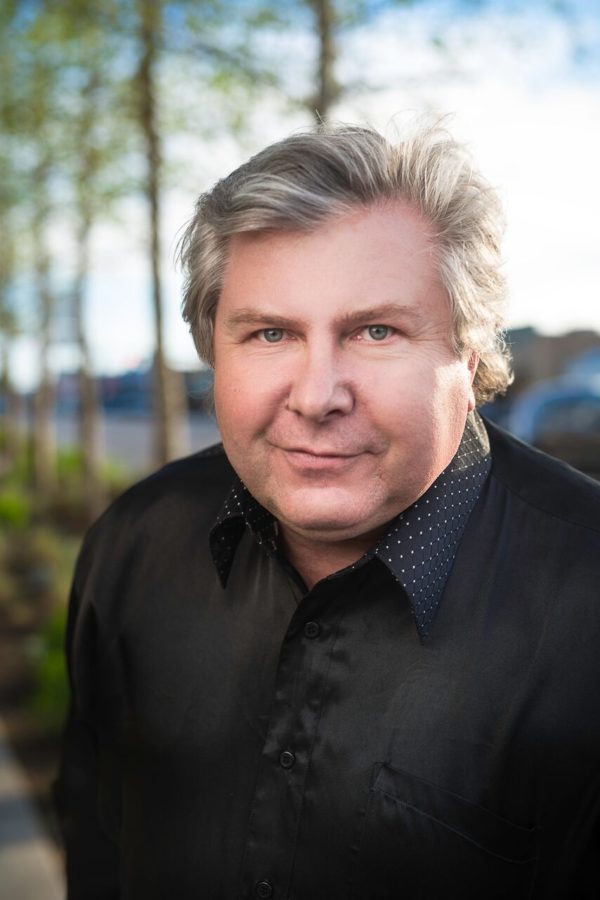On April 6, LAHC partnered with the Department of Foreign Language to host International Night at Highland Campus. The event was designed to showcase the variety of programs under the ACC Global Studies umbrella, network with our Austin-area community partners, and celebrate our community with a rich variety of cultural performances – including belly dance, singers from the UT Italian Opera, and Ballet Folklórico, to name just a few!
Among the many performers who were kind enough to share their culture and craft with our students was balalaika player Sergey Vashchenko. Sergey has spent 40 years introducing audiences around the world to the music and magic of Russia’s most iconic instrument. Now based in Austin, he is the executive director of Musical Connections, a nonprofit which promotes multicultural music education, and performs in the duo Flying Balalaika Brothers.
On top of sharing his music us, Sergey also volunteered his time to tutor Reese Johnson, a student currently enrolled in the ACC Russian Program, in the balalaika. The two of them performed together on stage during the Festival to the delight of all assembled.
We caught up with Sergey recently for a quick chat about his art, and what advice he has for students studying Russian at ACC.
1) How long have you been playing balalaika, and when did you start performing professionally?
I began by studying the accordion in 1970, and ended up parallel playing balalaika prima as part of an ensemble orchestra.
2) What initially drew you to study the balalaika? Did you face any challenges when you first started playing?
Not really – learning the balalaika was part of Music Education in the Ukrainian and Russian school curriculum.
3) Tell us a little about the importance of balalaika music in Russian culture.
Peter Tchaikovsky use balalaika folk music (Vo pole Bereza stoyala) in his 6th Symphony, Part IV. Melik-Pashayev also used the balalaika in his productions (Vdol` po Piterskoi).
4) How have non-Russian audiences responded to your music?
Often, they say that it sounds different than they expected – they never thought it would sound so nice!
5) What is your favorite thing about performing balalaika for a crowd?
Slowly accommodating their ears to balalaika music.
6) How were you recruited to play for ACC International Fest?
Professor Joseph Liro, who teaches Russian at ACC, reached out to me.
7) Can you describe your experience teaching your craft to an ACC Russian student?
The best part for me was getting to see the excitement in my student as they learned. Excitement has been the same response from students I’ve tutored everywhere I’ve played – Ukraine, Russia, Latvia, Spain, Germany and France – because they come to college with an open mind.
8) What advice would you to give students studying in our Russian program?
If you are able, go to Russia during your summer breaks. Do not go to Moscow or St. Petersburg, where most people know English – go to deep Russia. They always accept volunteer help (like the fish factory in Kostroma) and they love Americans. If you study music or a language, please, study every day, even just 15 minutes. Never give your brain a break, and always continue to build your muscle memory. Good luck!
The ACC Russian program will offer courses in Russian I and Russian III for the Fall 2018 semester. For more information, please contact vanessa.lazo@austincc.edu.

